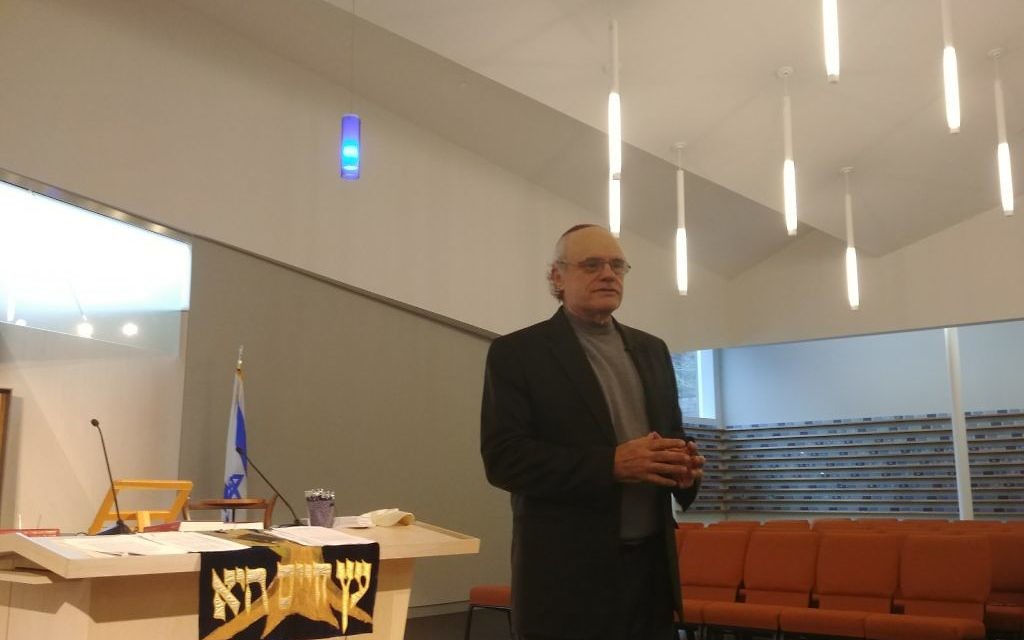Israel Is Unsurprisingly Unfinished at Age 70
Just think about where the United States was in 1846.

Israel has done a lot in 70 years in comparison with the United States at the same age in 1846, said Ken Stein, the president of the Center for Israel Education, but it remains to be seen where the country is headed and how it will fit into the continuum of Jewish history.
Like America at 70, Israel still hasn’t established its final borders or fully resolved how to operate as a democracy. Some ideas have stayed the same, he said, while others have transformed or remain unfinished.
The Emory professor of contemporary Middle Eastern history expanded on various concepts that have influenced Israel’s development, such as the Diaspora, anti-Semitism and Jewish Orthodoxy, while addressing “Israel at 70: Unfinished” on Sunday, March 25, at Congregation Or Hadash.
Get The AJT Newsletter by email and never miss our top stories Free Sign Up
Political concepts that define a state, such as taking care of one another and providing services, help explain how Jews have survived in the Diaspora, Stein said. Jews carried those survival skills to Palestine as they began to re-create a Jewish homeland in the early 20th century.
To survive as a minority in the Diaspora, Stein said, Jews constantly compromised on rituals and traditions, determined whom they could trust, and learned how to protect themselves. Those practices have helped Jews endure and Israel survive.
Assimilation, on the other hand, is transforming, Stein said. Israel has hastened the practice because people feel they have more choices and are not forced to retain their identity.
Israel’s effects on American Jewish religiosity can be seen through Jewish day schools, which help sustain traditions and keep Hebrew as a language that lives, Stein said.
Likewise, Israel has shaped American institutions, Stein said. “Our political reality, which means to be left or right but never center, has been taken and put on Israel’s back, for better or for worse.”
Outside influences on Israel’s young history include its relationship with its neighbors, the collapse of Arab states and the rise of Islam as a political platform, Stein said. Since the Cold War, for instance, it has become harder for Israel to identify its allies.
Israel’s neighborhood has changed dramatically over seven decades, leaving Israel unfinished, Stein said. Most notable, he argued, is the Israeli-Palestinian conflict, in which autocratic leadership denies the Palestinian population a say in its future.
Among other issues unresolved for Israel are how to integrate outsiders, how to practice democracy and how to include non-Jews, Stein said.
To summarize everything Israel has accomplished in 70 years would take a long time, but Stein used Rabbi David Hartman’s response to a question about what has enabled Jews to survive for millennia: “It’s simple. Jews have always taken challenges and made them into opportunities, and if we lose that, then we have lost who we are.”




comments